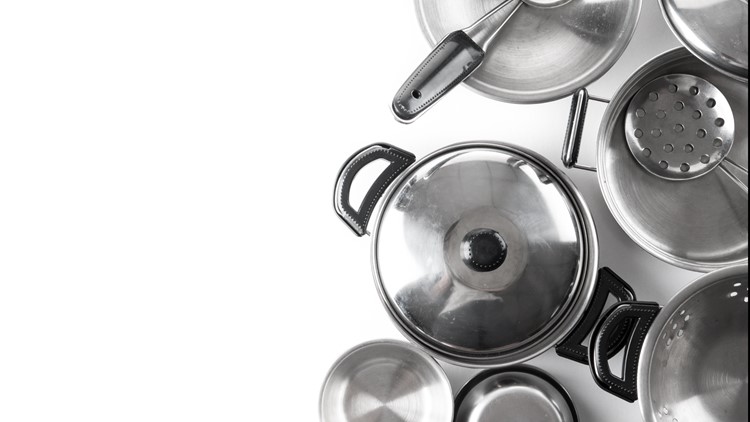KING COUNTY, Wash. — A new study from the Hazardous Waste Management Program in King County indicated certain aluminum cookpots and pressure cookers could expose people to lead, potentially posing a serious health risk.
Several tested aluminum cookpots released enough lead under simulated cooking and storage conditions to "present a significant risk for lead poisoning," according to a new lead cookpot study published in the Journal of Exposure Science and Environmental Epidemiology.
The health risks are especially risky for children and people who are pregnant or breastfeeding because of lead's effect on childhood brain development.
The Hazardous Waste Management Program said childhood lead poisoning is one of the most preventable non-infectious diseases but remains one of the most common childhood health problems worldwide.
Researchers outlined several solutions to reduce the chances of lead poisoning. People could replace their cookware with stainless steel cookpots or aluminum cookware certified by NSF International. The program found in further testing that contains lower levels of lead.
If people are unable to replace aluminum cookware, these steps can help reduce lead exposure:
- Avoid cooking acidic foods such as vinegar and tomatoes in aluminum pots.
- Wash pots by hand using warm water, a delicate scrubber, and mild soap as soon as possible after using. Avoid using the dishwasher for aluminum cookware, as some dishwasher detergents can be harsh, especially when used with hot water.
- Store leftover meals in BPA-free plastic or glass containers.
- Recycle unwanted aluminum pots. Most waste management agencies will accept aluminum pots for recycling.
A blood test will reveal if a person has been exposed to lead exposure, the Haz Haste Program said in a release.



